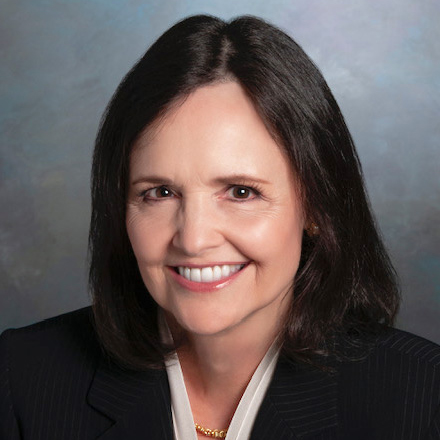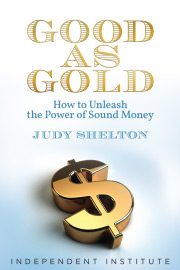“Le laisser-faire, c’est fini.”
It was French president Nicolas Sarkozy who actually uttered the words, but you could draw the same message from watching the televised debates in the United States at both the vice-presidential and presidential level. You know that America’s founding economic philosophy is in deep trouble when candidates for our nation’s highest office refer easily to “Wall Street greed” and “predatory lenders” to explain the global financial crisis. And those are the Republicans.
Where are the champions of free-market capitalism? Someone needs to remind us all that two great works were published in 1776, both representing game-changing advances in human freedom: The Declaration of Independence, authored by future American president, Thomas Jefferson, and “The Wealth of Nations” by Scottish economist Adam Smith. Both embrace the social wisdom of individual liberty; both extol the importance of personal responsibility.
These days, it seems difficult to defend the efficacy, let alone the morality, of an economic approach to human interaction that is now blamed for having put the entire global economy at risk. But that is exactly what we need—most importantly, from America’s next leader.
Sometimes it takes an outsider to help us gain perspective. Deep within the condemning speeches delivered by Mr. Sarkozy, both in New York and Toulon, are the grains of a new approach to capitalism that should give Americans reason to hope, not only for economic salvation but for a sense of redemption on a deeper level. France’s president held out the possibility that all is not lost, that we can fix what is broken. “The financial crisis is not the crisis of capitalism,” according to Mr. Sarkozy. “It is the crisis of a system that has distanced itself from the most fundamental values of capitalism, which betrayed the spirit of capitalism.”
It is a distinction that could make all the difference. The world at large is drawing lessons from this economic crisis that will influence the political destiny of mankind. Mr. Sarkozy is trying to harness the collective dissatisfaction into a bold call for global reform. He is calling on world leaders to hold a summit before the end of this year to lay out proposals for a new approach to international financial and monetary relations. It could be the world’s biggest boondoggle—or the dawn of a new beginning for capitalism.
If we are to build a new foundation for global financial and monetary relations on the scale of the Bretton Woods Agreement conceived as World War II was still raging, we must summon the intellectual depth and political will that can only derive from a strong sense of moral purpose. Give credit to Mr. Sarkozy for demonstrating leadership in attempting to salvage what we know is true—that democratic capitalism is the best hope for mankind—while jettisoning the abuses and fraudulent practices that have distorted the outcomes of free-market competition. The French president’s call for a global summit should be heeded.
What are the basic principles that we can forge together toward this “true capitalism” that Mr. Sarkozy has described, this market economy that utilizes the power of genuine competition to serve the needs of individual producers and consumers? It is a capitalism that accords primacy to the entrepreneur—that compensates hard work, innovative solutions, stalwart commitment and personal discipline. The values that define the character of individuals should find expression in the policies that underpin the legitimacy of governments. Honest capitalism requires the following:
—Free-market clarity. Consumers must be able to properly judge the inherent value of goods brought to the marketplace if markets are to function properly; this applies to financial instruments as wholly as it does to products and services. When the trade-off between risk and return is obscured by an implicit government guarantee—as exemplified by Fannie Mae and Freddie Mac securities offered with a “wink” from Uncle Sam to eager purchasers around the world—the consequences can prove extremely damaging. False advertising leads to compromised market outcomes; it constitutes a betrayal of the consumer.
—Monetary integrity. Monetary-policy decisions that “stimulate” the economy by issuing too many claims to real production, or “constrict” the economy by reducing the amount of available purchasing power or capital investment, utterly confound the notion of stable money. Money represents a moral contract between government and ordinary citizens—the sanctity of money rests in its reliability as a store of value. Inflation robs the worker of savings he has accumulated through his labors; by means of government stealth, it diminishes his future purchasing power. The U.S. mortgage mess can be partially traced to the environment of perpetual inflation that seduced citizens into believing the price of housing would rise forever.
—Financial validity. What turns the reputable practice of granting credits to deserving borrowers into a high-stakes casino game where the biggest stacks of chips are held by speculators working for the world’s largest banks and investment houses? The $700 billion in bailout money begrudgingly approved by Congress only begins to address the problem of estimating the total overhang of outstanding financial instruments by settling on a price for the mortgage-backed securities. Imagine the Blackjack dealer staring into the anxious faces around the green velvet table; all the players are desperate to know what is printed on the face-down card as trillions in wagered bets await resolution. Exotic financial derivatives that gamble on the anomalies of the global economy—currency movements, interest-rate disparities, governance incongruities—mock the very concept of “investment” to generate future higher returns from production.
—Regulatory responsibility. Rule of law is a core requirement for civil society; without it, anarchy reigns. Government regulation does not create wealth, but it is a necessary condition to provide the stable and predictable environment that permits buyers and sellers to carry out economic and financial transactions with confidence. Trust is achieved through transparency, first and foremost. And while government regulation, at its best, merely functions as the incorruptible referee—it will never dream up the breakthrough projects that become capitalism’s greatest success stories, nor have the discernment of the venture capitalist who recognizes an entrepreneur with a brilliant idea—it nevertheless plays a key role. Governments should view economic freedom as a basic human right, to be respected and protected by ensuring that markets function smoothly and openly.
—Entrepreneurial opportunity. Much of the resentment felt by citizens toward the massive investment companies who peddled bad government paper, and the craven politicians who promoted the practice, stems from the perception that capitalism is rigged toward the most powerful. When the owner of a small retail outlet or medium-sized service firm gets into financial trouble—who steps in to help? Why are the rules to start a business so onerous, why is the bureaucratic process so lengthy, why are the requirements for hiring employees so burdensome? When does the entrepreneur receive the respect and cooperation he deserves for making a genuine contribution to the productive capacity of the economy? Equal access to credit is sacrificed to the overwhelming appetite of big business—especially when government skews the terms in favor of its friends. It is time to pay deference to the real economic heroes of capitalism: the self-made entrepreneurs who have the courage to start a business from scratch, the fidelity to pay their taxes, and the dedication to provide real goods and services to their fellow man.
If we can build a new financial and monetary order to serve the needs of these people—wherever they exist around the world—we will help to bring about the fulfillment of the highest ideals of capitalism. With freedom comes choice; with choice comes responsibility. What is true within one’s own life and one’s own community should be true for the world at large. Integrity matters, competence counts, and earnest effort finds its reward. The Latin root of the word “credit”—credere—means “to believe.” There is no better starting point for restoring morality to capitalism.
Who would have guessed that it would take a Frenchman to remind us that hope is the limitless source of power that drives the human spirit to create, to improve, to achieve its dreams; it is the greatest civilizing influence in our culture. Yet it was Mr. Sarkozy, speaking before Congress last November, who offered the most profound assessment of our nation’s gift to the world. “What made America great was her ability to transform her own dream into hope for all mankind,” he said. “America did not tell the millions of men and women who came from every country in the world and who—with their hands, their intelligence and their heart—built the greatest nation in the world: ‘Come, and everything will be given to you.’ She said: ‘Come, and the only limits to what you’ll be able to achieve will be your own courage and your own talent.’”
It’s a lesson that should never be lost or forgotten.









